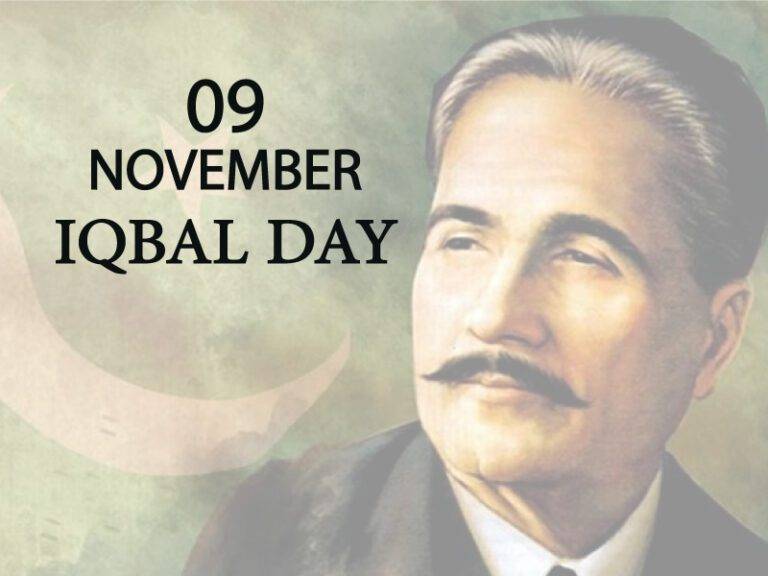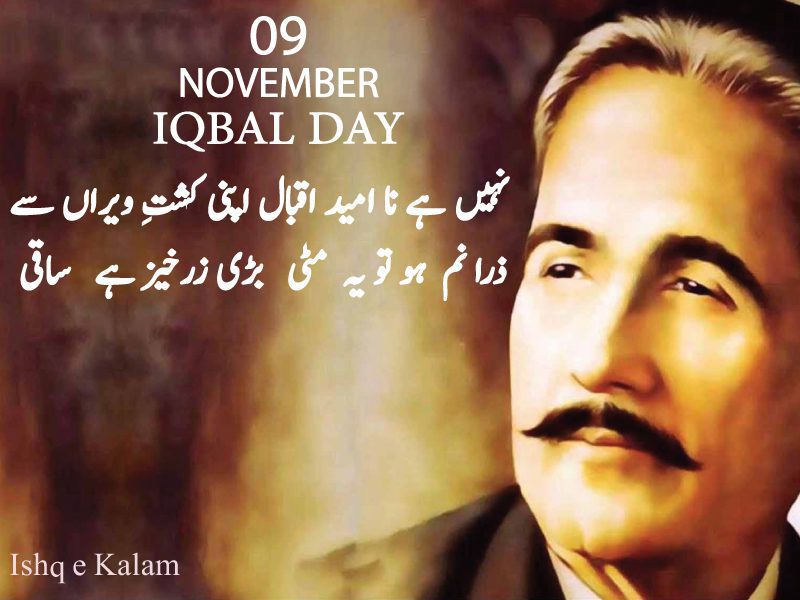
Every year, 09 November Iqbal Day, a day dedicated to commemorating the life and legacy of Sir Muhammad Iqbal, a visionary poet, philosopher, and thinker born on November 9, 1877, in Sialkot. Known as the “Poet of the East,” Iqbal’s contributions extend far beyond poetry; he is celebrated for his profound ideas on Islamic revival, cultural identity, and political self-determination. His ideas not only inspired the Muslim community of British India but also played a crucial role in igniting the movement that led to the formation of Pakistan.
The Role of Poetry
Iqbal’s poetry is known as one of the great poets of the 20th century. He composed his poetry mainly in Persian and Urdu, and gained great acclaim by writing his poems in Persian such as Asrar-e Khudi (“The Secret of the Self”) and Rumuz-e Bekhudi (“The Secret of it is about the absence of self”) In these works he presents self-awareness , spiritual awakening, union with the divine It also deals with profound issues of travel. His Urdu poetry, especially in collections such as Bang-e-Dra and Bal-e-Jibril, continues to explore themes of love, faith and social transformation.
Iqbal’s poetry was not only a pursuit of beauty but also a call to action. His words have inspired countless Muslims across the Indian subcontinent to imagine a future in which they can live with dignity and self-respect. Through his passage, he expressed a vision of a society based on Islamic values, a vision that was crucial in arousing support for the Pakistan movement.
Iqbal and the Pakistan Movement
Iqbal’s vision of a separate homeland for Muslims in British India is one of his lasting legacies. In his famous Allahabad Speech in 1930, he expressed the idea of an independent Muslim state in the north-western parts of India. Though he did not explicitly call for the creation of Pakistan as it was, his ideas laid the foundation for the political struggle that eventually led to the creation of the nation in 1947. Leaders like Muhammad Ali Jinnah who admired Iqbal embraced his vision.
Iqbal Day Poetry
09 NOVEMBER IQBAL DAY POETRY

[download_image url=”https://ishqekalam.com/wp-content/uploads/2024/11/iqbal-day-1.jpg”]

[download_image url=”https://ishqekalam.com/wp-content/uploads/2024/11/iqbal-day-poet.jpg”]

[download_image url=”https://ishqekalam.com/wp-content/uploads/2024/11/iqbal-day-shair.jpg”]

[download_image url=”https://ishqekalam.com/wp-content/uploads/2024/11/4-3.jpg”]

[download_image url=”https://ishqekalam.com/wp-content/uploads/2024/11/5-5.jpg”]

[download_image url=”https://ishqekalam.com/wp-content/uploads/2024/11/allama-iqbal.jpg”]